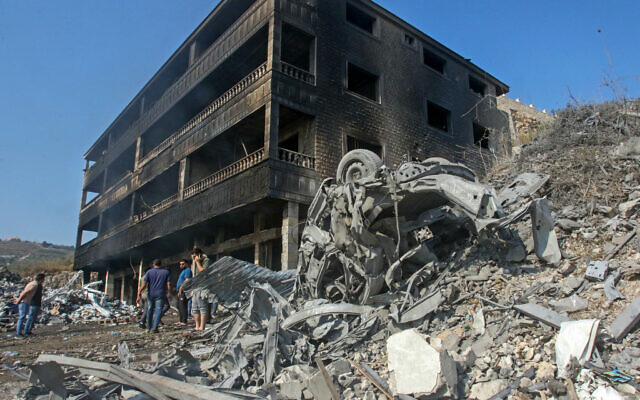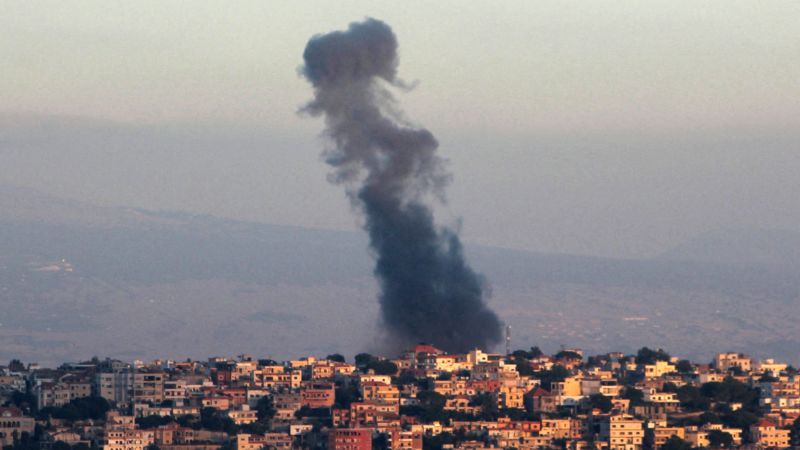
Title: Tensions Between Israel and Hezbollah Escalate: A Comprehensive Overview
In recent months, tensions between Israel and the Iran-backed Lebanese militant group Hezbollah have escalated, leading to a series of cross-border attacks. In this article, we will provide a comprehensive overview of the situation, including its history and current developments.
Background: A Longstanding Conflict
Israel and Hezbollah have been officially at war for decades. Israel invaded Lebanon in 1982, occupying it for 22 years until being driven out by Hezbollah in 2000. Hezbollah is considered a 'resistance' group in Lebanon and designated as a terrorist organization by much of the Western world.
Trading Fire: Recent Developments
Since 2006, Israel and Hezbollah have traded fire sporadically. In 2006, tensions boiled over into a full-blown war, resulting in over 1,400 deaths. Hezbollah has grown its military capability since the 2006 war and is believed to possess over 150,000 rockets.
Recent Threats and Countermeasures
An Israeli reservist was killed by Hezbollah on November 3, bringing the total number of soldiers killed to 19. In response, Israel is prepared for 'very intense action' in the north and will restore security to the region. Hezbollah's second-in-command, Naim Qassem, believes recent threats from Israel are not serious and that Hezbollah will end its attacks on Israel once the war in Gaza stops.
Impact on Civilians
Over 53,000 Israelis have been forced to leave their homes in the north and over 94,000 Lebanese have been displaced from areas near the border since the conflict started.
Conclusion: A Delicate Situation
The situation between Israel and Hezbollah is a delicate one. Both sides have reasons for calibrating their attacks to avoid a larger conflict, but tensions remain high. It is crucial that all parties involved prioritize diplomacy and de-escalation efforts to prevent further escalation.
Sources:
- 'How Hezbollah and Israel Have Kept the Lid on a Wider War', The New York Times, June 7, 2024
- 'Top commander in north says IDF ready for war against Hezbollah', Times of Israel, June 7, 2024
- 'Biden: Netanyahu heeded my warning against major Rafah offensive, scaled back IDF ops', The Times of Israel, June 7, 2024
- 'Tensions ramp up on Israel-Lebanon border as IDF warns decision is approaching on fresh offensive', CNN, June 5, 2024
- 'Why Israel-Hezbollah tensions risk boiling over now', CNN, June 6, 2024





